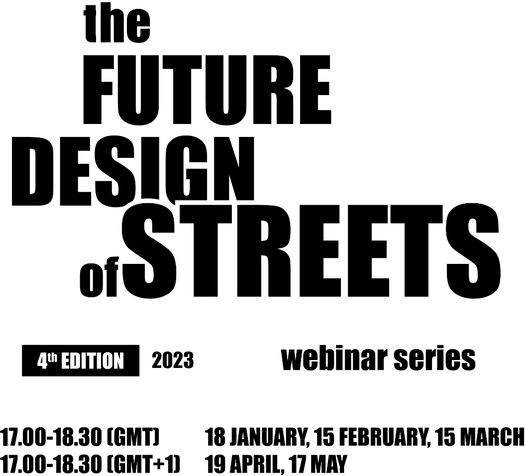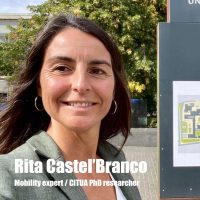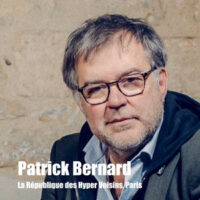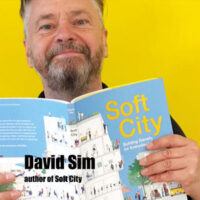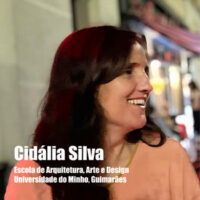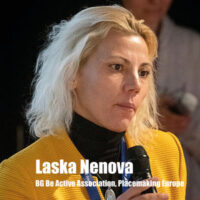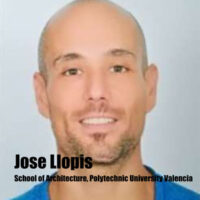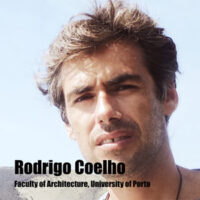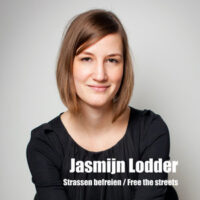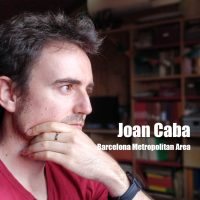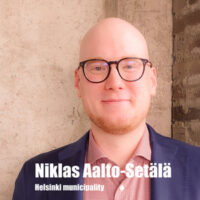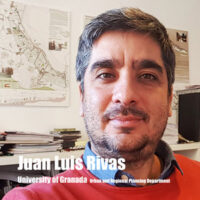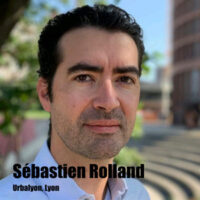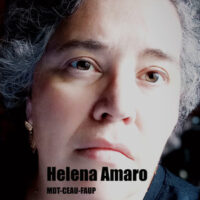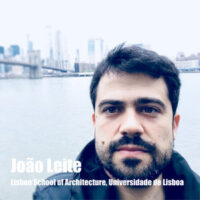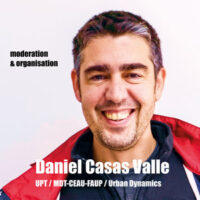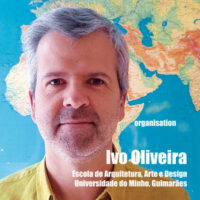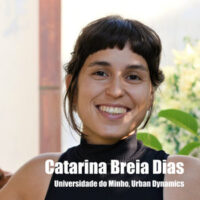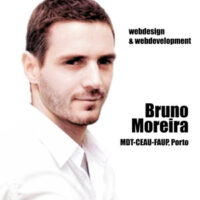Live-streamimg directly on HOME page.
Streets are important spaces in urban areas and form resilient collective spaces for all of us. Streets are adaptable by their ability to integrate new uses and new technologies. Now and tomorrow. Within the balance of new societal, sustainable and technological challenges and demands, street design must be redefined. In five sessions ‘The Future Design of Streets’ will be explored by various speakers from different countries. What are possible new strategies for street design? Who is using the street space? How can we design to improve streets? And, which questions are important to ask?
Streets are human spaces that are full of tales, with individual stories and collective histories. Spaces of interactions and conflicts. Spaces for cultural and economic activities. Streets are ecological spaces for flora and fauna, offering space for shade, water and space for trees and plants. Streets are spaces of mobility flows, spaces of walkable proximities and spaces of urban flows.
In this fourth edition of the Webinar Series, we will continue to open up our spectrum of views to understand and imagine the wide possibilities on Street Design. The aim is to define the future design assignment, for new streets and adaptation of existing streets, by recognising the diversity and complexity of urban life. Within a context of uncertainties and new possibilities a whole range of new street types can be re-imagined. This inquires a critical look on how we can design our streets of the future. In a series of short presentations and open talks, we will explore this through the lens of five themes: changing streets, play & sport, new/old approaches, big streets and outside suburbia.
SESSIONS
Rita Castel’Branco
An architect specialised in mobility, urban and street design, Rita worked for Lisbon Municipality for 15 years. Looking at active mobility as a tool for healthier, happier and more equitable cities, she has strived to make cycling a viable means of transport, leading the planning of the GIRA Bike Sharing System and of a large part of Lisbon’s cycling infrastructure; worked on dozens of public space projects; and designed the strategy for the implementation of protected neighbourhoods and superblocks in Lisbon. Her wider view and commitment to an integrated transport system stands out in Move – Strategic Vision for Lisbon Mobility 2030, which she co-authored.
Currently pursuing a PhD that relates urban shape, accessibility and urban living, Rita intends to narrow the gap between knowledge and everyday urban space practice by proposing an alternative legal framework.
Patrick Bernard
Patrick Bernard, former journalist then newspaper director, founded La République des Hyper Voisins in 2017 in a district of Paris. His goal ? Turn neighbours who say hello 5 times a day into Hyper Neighbours who say hello 50 times a day. Since then, the project has developed and is now focusing on the social engineering, led by a « friend of the neighbourhood », that will allow to transform a citizen who behaves as a passive consumer in the public space into a real daily player inside his territory. To achieve this, the Republic of Hyper Neighbours work on replicating his first village throughout Paris and creating the “School of Proximity” in order to train, in one year, “friends of the neighbourhood” in social cohesion.
David Sim
Creative Director at Gehl | Copenhagen | Denkmark
David Sim is Creative Director at Gehl. For more than ten years David has been focusing on Masterplanning Frameworks and urban design, collaborating with other professionals in the planning and building process, applying Jan Gehl’s theories to large-scale projects. David is also renowned as an inspiring educator and lecturer, and has taught at architecture and design schools all over the world.
Cidália Silva
Cidália Silva is an architect and a researcher at Lab2PT. She is an Assistant Professor of Architecture and Urbanism at the University of Minho’s School of Architecture, Art and Design. She earned a Diploma in architecture in 2000 and a master’s degree in urban planning and design in 2006 before completing her PhD at EAUM in 2014. Her thesis was titled “See(d)(k)ing Time: An Approach to How to Design as Research.”
She has been an active participant in numerous interdisciplinary conferences, and she has published internationally papers, book chapters, and co-edited several books. Editor of The International Journal of the Constructed Environment (2015-2021), Cidália Silva was a Visiting Professor and Researcher at SRH University Heidelberg, funded by the DAAD (2021-2022).
Laska Nenova
With over 25 years of experience in marketing, campaigns, advocacy, and project management across multiple sectors and countries, I am passionate about creating and implementing large-scale initiatives and campaigns promoting behaviour change. I strive for my work’s results to have a societal impact. I am the founder of the BG Be Active Association, currently heading strategy development, external relations, and fundraising. I am also a founding board member of Placemaking Europe. I have experience as a non-formal education trainer and I enjoy creating and delivering seminars, workshops, and talks. Previously I was engaged with the International Sport and Culture Association as the Head of membership and campaigns.
José Llopis
Jose is a professional architect (specialised in urban design and buildings) with a degree from Valencia´s School of Architecture – Polytechnic University. Jose also holds a master degree in Sustainable Infrastructure and Territory, from the Universiy of Valencia, and is keen on green design of cities.
The start of the professional career was in Amsterdam as an intern followed by several positions in Europe in architecture, urban design, and landscape design. In 2019, Jose founded ‘Ecoremedi’ and have been participating in different projects focused on the city of Valencia. He also worked in Dubai for several years on construction sites for major developments including The Pearl project, which involved liaison of construction activities, working with contractors and looking after the cost elements of the project.
Holly Lewis
Holly co-founded We Made That in 2006. We Made That create equitable places through incisive research and impactful projects.
She is a registered architect and affiliate member of the Landscape Institute. She has led a unique range of urban projects for the practice, from pioneering industrial intensification work through to comprehensive high street regeneration projects. Holly advocates for community involvement within the design process, empowering women in the built environment and equitable city-making.
Holly is a national High Streets Task Force Expert, Mayor’s Design Advocate for the Greater London Authority and a Design Council Expert. She was shortlisted for the AJ Emerging Woman Architect of the Year Award 2012, is a former trustee of The Architecture Foundation and lectures internationally.
Rodrigo Coelho
Rodrigo Coelho (1971) is graduated in architecture from the Faculty of Architecture of the University of Porto (FAUP) and holds a Master in Architecture and Urban Studies from the Polytechnic University of Catalonia and Centre of Contemporary Culture of Barcelona (Master Metropolis) and a Ph.D from the Faculty of Architecture of the University of Porto.
He is an Assistant Professor at the Faculty of Architecture of the University of Porto and former Deputy Director of the Centre for Architecture and Urban Studies CEAU-FAUP (2013 – 2018) where he develops, as an integrated member, research on the subject of public space. Since 1994 he has an independent professional activity as an architect.
Jasmijn Lodder
Jasmijn Lodder is project and communications manager for the “Free the streets” project (Strassen befreien) at think-and-do tank paper planes e.V.
Based in Berlin, Germany, she and her team launched the “Free Street Manifesto” in June 2022, which was curated in cooperation with the Berlin Social Science Centre (WZB) and the Technische Universität (TU) Berlin.
Jasmijn Lodder studied languages and political sciences in the Netherlands, Belgium, and France. A College of Europa alumna she worked in European affairs in Brussels for seven years before moving to Berlin. There she was part of the Infrastructure & Water Management team at the Embassy of the Kingdom of the Netherlands, focusing on environment and mobility policy. At paper planes e.V. she drives projects on sustainable mobility and urban planning with creativity at their core.
Joan Caba
Joan Caba, senior urban planner at Urban Planning department of the Barcelona Metropolitan Area AMB
Joan Caba is a Catalan Architect and Urban Planner. Since 2015, he works at Urban Planning department of the Barcelona Metropolitan Area AMB where he has collaborated in several projects and research identifying which are the metropolitan role of mobility infrastructure and the industrial states. Currently, he is the network coordinator of RiConnect, a URBACT network of 8 metropolises which aim is to rethink, transform and integrate mobility infrastructures in order to reconnect people, neighbourhoods, cities and natural spaces.. In parallel, he also provides to the metropolitan municipalities technical support on urban planning. Previously, he worked in Manuel de Solà-Morales office (Barcelona 2007-2011), Greater London Authority GLA (London UK 2013) and Kiosk architecture & design (Newcastle upon Tyne UK 2014-2015). He also lectured architecture and urban design at Newcastle University (2014-2015).
Niklas Aalto-Setälä
Niklas Aalto-Setälä works as a strategic urban planner for the city of Helsinki. His work focuses on the strategic integration between land use and transportation planning. Parts of his work focus on redeveloping existing highways into urban land use and mobility corridors.
Niklas has a bachelor’s degree in planning geography from the University of Helsinki and a master’s degree in spatial planning and transportation engineering from Aalto University.
He has also worked as the cycling coordinator for the city of Helsinki and as a land use and transportation planning expert at a consulting company.
Juan Luis Rivas
Juan Luis Rivas (Seville, 1975) is an architect, Associate Professor of the Urban and Regional Planning Department (University of Granada). He combines his teaching, research and professional activity through the Research Group ‘Research cluster on territorial synergies’ and the RB Arquitecturas Urbanas office.
He has received various prizes in national and international urban planning and urban project competitions like the Special Mention in the Europan 15 contest, ‘Productive Cities 2’ in 2019, with the “Lattice-Work” proposal for Oliva (Valencia, Spain), led with her partner, also architect and professor at the UGR, Belén Bravo. He coordinated the 6th European postgraduate symposium on Sustainable Development (2016), held at ETSAG (UGR).
He has been invited by many European universities, his research on urbanism, landscape, sustainable mobility, urban design, etc., have been published in books and journals with international impact.
Sébastien Rolland
Sébastien Rolland is town planner and urban designer at the Lyon Town Planning Agency (Urbalyon). From 2010 to 2020, he has been the project manager of “Inter-Scot”; a public partnership that aims to coordinate policies and actions of 13 masterplans within the Lyon Metropolitan Area (3.2 million inhabitants). To further develop and implement a Polycentric Metropolitan Vision he worked closely with elected officials and directors of local authorities on the development of territorial projects.
Since 2020 he leads the international department of Urbalyon coordinating more than ten technical assistance in city to city cooperations. Sebastien is also active in European networks such as Eurocities and METREX of which he’s a Managing Committee member.
Helena Amaro
Helena Barbosa Amaro (1975) is a Ph.D candidate in architecture at FAUP, and a researcher at CEAU. With a degree in law and a post-graduation in urbanism, environment and land planning, she worked, for almost 20 years, as legal adviser, in several projects with architects, engineers and contractors. She also worked in urban management, classified heritage, and urban rehabilitation areas. Her research crosses mobility, housing, and employment, aiming to address public policies. She stands for a public policy in mobility as a tool for social cohesion and as a decisive variable in landscape management.
João Leite
João Silva Leite (1981) is architect and PhD in Urbanism (2016) by Lisbon School of Architecture, Universidade de Lisboa, with the thesis “Emergent Streets”. He is Assistant Professor at some school and member of formaurbis LAB/CIAUD, an urban morphology research laboratory.
He regularly publishes and participates in international seminars related with urban form, especially with the topics around the urban infrastructures or public spaces renewals. He integrated the team of several funded research projects of which the “Building Typology” and “MetroPublicNet” stands out. In 2014 he was awarded by BIAU with the prize of best master thesis, with the title “Commercial Road”.
ORGANISATION
Daniel Casas Valle
Daniel is an urbanist – urban designer and planner – with a broad experience based on urban planning practices and academic activities. He is for more than two decades connected to urbanism, as a designer and researcher. Currently, he is working on various urban design projects and planning studies at his office Urban Dynamics in Porto/Amsterdam and at the MDT/CEAU/FAUP as a researcher. Daniel operates in various stages of planning processes, from the elaboration of an assignment brief, studies on specific themes as ´active and healthy space´ or ´street design and planning´, to concrete spatial plans and urban designs. Also he gives reflective contributions in writings, presentations, workshops and debates.
Daniel holds a master on urbanism (Amsterdam, NL), and completed his PhD at the Faculty of Architecture, Porto University, in 2018 (cum laude).
Ivo Oliveira
Architect (FAUP, Porto, 2000) with a Master in Architecture Territory and Memory (FCTUC, Coimbra, 2007) and PHD (EAUM, Guimarães, 2015). Professor at the EAUM since 2004, and since 2015 researcher of LAB2PT at Minho University. Is researcher on topics as road infrastructure and public space in widely urbanized territory. Ivo contributed to different research work as “NO Void – Ruins and vacant land in Portuguese cities: exploring the dark life of abandoned urban spaces and alternative planning proposals for the perforated city” (2015-19) and “The Sea and the Shore, Architecture and Marine Biology: The Impact of Sea Life on the Built Environment” (2018-20). He is director of the Integrated Master in Architecture program and member of UM-Cities board from 2017, a platform that seeks to promote and value exemplary practices in the city and territory, namely how they can contribute to a more sustainable and fair society.
Catarina Breia Dias
Catarina Breia Dias, Cacém (1994). Master’s in architecture at the Lisbon School of Architecture (2018). Catarina has been working as an architect between Lisbon, Ghent and Porto. Currently she holds a fellowship from Lab2PT, at Minho’s University, where she is working at The Future Design of Streets Platform. Catarina advocates for a social, multicultural and age inclusive city, a cohesive territory on the city centre, but also the outskirts, and, for new paradigms that bring out the community involvement within the design process.
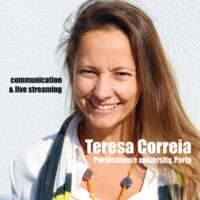
Teresa Correia
Teresa is a Communication Designer, with extensive experience in the field of higher education, currently working in the Marketing and Communication Department at Universidade Portucalense, in Porto. Graduated in 2004 as a Communication Designer at ESAD, Porto; she obtained a Masters in Design, in 2009, at the University of Aveiro, Department of Communication and Art. In 2012, she attended the 1st year of the PhD in Design, at UA. In 2017, she obtained the title of Specialist in Design at Escola Superior Gallaecia. For 15 years, Teresa was a teacher in the degrees of Design, and Multimedia and Arts, at Escola Superior Gallaecia. She also integrated Ci-ESG Research Center at Escola Superior Gallaecia, where she participated in several projects, such as the development of an App for Accessible Tourism; the Graphic component and the Communication and dissemination of the European Projects 3DPAST and VerSus, SEISMIC-V and VERSUS+: Heritage for Tomorrow, but also, the Graphic creation of CIAV 2013 International Conference. Since 2017, she has been nominated President of the Convento da Orada Foundation.
Bruno Moreira
Graduated and master in Architecture and PhD in Urbanism by FAUP.
BIM Specialist in Castro Group and researcher in the Center of Studies for Architecture and Urbanism (CEAU-FAUP) since 2010, focused in territorial management instruments and in communication and representation of architecture.
He combined practice and research with teaching experience as assistant of Computer Aided Architectural Design and of Communication, Photography and Multimedia, and invited teacher of Computer Aided Design and REVIT training course in FAUP.
Certified IEFP and FLAG instructor – a training center specialized on the use of visual and interactive technologies and supports as creative tools – and member of Cityscopio, a cultural association dedicated to documentary and artistic photography on architecture, city and territory.
Has a particular interest and experience in interdisciplinary knowledge on architecture, BIM technologies, photography, geographic information systems, 3d modeling and rendering and programming/webdevelopment.
PARTNERS

SUPPORT


